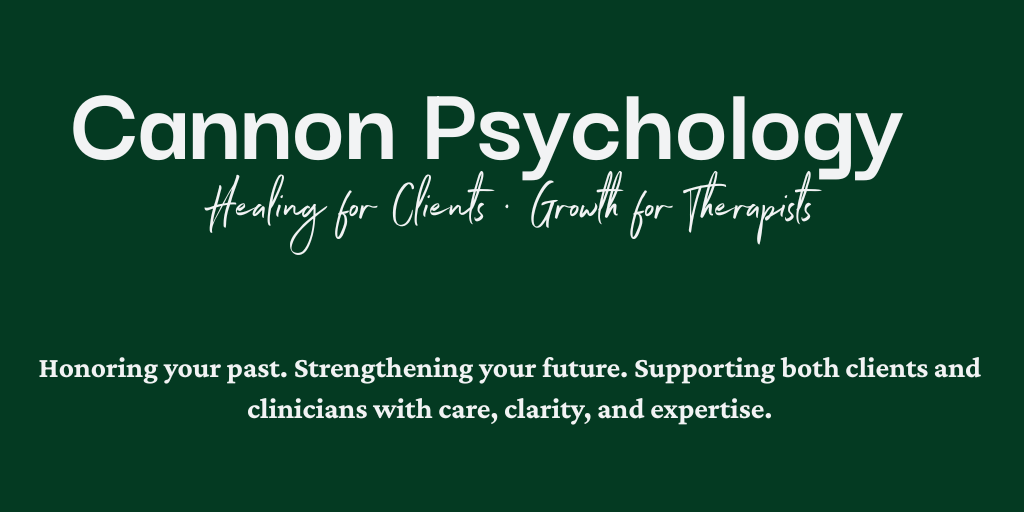
Frequently Asked Questions
+ Do You Offer In Person or Telehealth Sessions?
My practice is entirely virtual - I no longer offer in person sessions.
+ What Can I Expect When I Meet With You?
At your first appointment, we will be reviewing Informed Consent and clarifying any questions you have about treatment. Together will get into the weeds pretty quickly about what your goals are for treatment. The next 2 sessions after this, we will be completing a general assessment about your life so I can get to know you better and create a comprehensive treatment plan (with your input of course)!
In EMDR, we need to work through a preparation phase, where you learn how EMDR works and focus on building some skills prior to us beginning the deep work of EMDR together. I often introduce IFS as a way to prepare for EMDR as well. It completely depends on your needs, and we do not want to rush this part! The next step is working on targets (i.e. your divorce, that awful car accident, etc.). According to the EMDR International Association, targets generally take 1-7 sessions to complete. We won’t completely know until we get in there and do the work!
+ How Long Does Therapy Take?
This completely depends on your treatment goals! If you have one incident that you’d like to clear in EMDR, then that will take a much less time than if you are looking to address multiple life experiences, negative beliefs, etc.
The minimum amount of time people seem to spend with me is six months. We will have weekly sessions together to move you to healing at a much quicker pace.
+ How Often Will We Meet?
I require a weekly committment in order to work together. Below is my consistency policy:
Consistency Policy
Treatment progress is highly dependent upon your engagement and consistency in this process - therefore we will meet on a weekly basis for the first three months. After this time, we will re-evaluate and decide together treatment frequency based on your progress. You are committing to therapy with both your time and your finances. This investment will enhance your treatment experience.
When you schedule an appointment with me, you are committing to pay for that time. You may have one missed session fee waived per calendar year for any reason. After this waiver is used, you will be responsible for paying the fee for any future missed sessions during that same calendar year.
If you cannot attend one of your appointments because of vacation, illness or other scheduling changes, your options are as follows:
• Reschedule your appointment in the same week • Double up appointments in the week prior and/or the week following your schedule change • Forfeit your appointment and pay the full session fee • Use your once/calendar year “freebie” if you still have it available to you
All rescheduling must occur within 24 hours of your scheduled session. If you reschedule within 24 hours, it is considered a Late Cancellation and your freebie (if available) will automatically be applied. Otherwise, you will be charged the full fee for your session.
If you No Show for a session and you still have your freebie available, your freebie will be applied automatically. If you no longer have a freebie available for the calendar year, you will be charged the full fee at the end of your session time.
If you have Late Canceled or No Showed for a session and would like to add another session for the week, that session will be charged the regular, full fee.
If you are late to session, I will meet with you for the remainder of your appointment time. Please text as soon as you know you will be late.
If you need to reschedule your appointment, I will make every effort to find a time for you that aligns with your schedule and mine. If we are not able to find a time slot that works for the both of us, you will be required to pay for the missed session or use your “freebie.”
Regarding my availability, my session times are quite flexible. However, to ensure my ability to provide the highest quality of treatment, I limit the number of sessions I provide in one day. This limitation of open slots may impact your ability to reschedule and I encourage you to prioritize our sessions in your schedule to minimize treatment interruption.
You are not required to pay for sessions that I cancel. I will make every effort to alert you of planned vacation times in advance.
If I am ill, I will notify you as soon as possible and we will attempt to reschedule your appointment for that week, or add an additional session the week after. You will not be responsible for the cancellation fee in the event you are unable to reschedule.
If you are unable to pay for your appointments for two consecutive sessions, we will not schedule another appointment until the balance is paid. Should you fail to attend a scheduled appointment for two consecutive weeks, unless other arrangements have been made in advance, I must consider the professional relationship discontinued for legal and ethical reasons.
For those submitting Superbills to their insurance companies, it should be noted that your insurance will not reimburse you for fees incurred due to missed sessions.
+ Do You Have Weekend Or Evening Appointments?
My schedule is generally flexible, though I do not do sessions on the weekends.
+ How Long Are Your Sessions?
Your EMDR treatment sessions are 50 minutes long. It gives us enough time to make progress on your goals and allow you to leave the session feeling grounded and centered.
+ What If I Need An Additional Session Or Need To Reach You In Between Sessions?
If you call, I will return your call within one business day - I am not available for immediate crisis intervention. We can certainly schedule additional sessions based on your needs.
+ Do You Treat Children Or Adolescents?
I primarily treat adults and young adults. There are excellent therapists who specialize in children and adolescents and I want you to have the best!
+ What Are The Types Of Clients You Typically Treat?
The clients that I'm able to help most effectively are seeking help for:
- Complex Post Traumatic Stress Disorder (C-PTSD)
- Post Traumatic Stress Disorder (PTSD)
- Complicated Grief
- Panic Attacks and Anxiety
- Physical/Sexual Abuse (and/or assault)
- Acute Stress Disorder
+ What Are The Types Of Clients You Typically Do Not Treat?
I’m very good at some things (see “what are the types of clients you typically treat?). But there are other things that are not in my wheelhouse. Therapy is an investment and I want you to invest in the right psychologist - and that won’t necessarily be me! I would refer out anyone seeking assistance for the following:
- Couples Therapy
- Family Counseling
- Eating Disorders
- Borderline Personality Disorder
- Obsessive Compulsive Disorder
- ADD/ADHD
- Bipolar Disorder
- Schizophrenia
- Schizoaffective Disorder
For example, the evidence based treatment modality for Borderline Personality Disorder is Dialectical Behavioral Therapy (DBT). While I’m quite familiar with this treatment, I’m not an expert - and you deserve an expert.
Caveat - if you have obtained DBT and there are specific experiences from your past that you would like to process utilizing EMDR, then let’s talk!
+ Are There Some Things You Just Don’t Do?
Yes. I am not equipped to provide full psychological batteries, educational assessments, child custody testimony or expert witness testimony. I haven’t touched an MMPI, Rorschach, Thematic Apperception Test, WISC, WAIS, etc. since grad school!
+ What Types Of Modalities Do You Use?
I’ve found over the years that Eye Movement Desensitization (EMDR) to be the most effective and efficient therapy - in fact, I often call it “therapy on fast forward.” I also tend to lean toward Internal Family System at times as an adjunct to EMDR.
+ Isn’t EMDR Only For Post Traumatic Stress Disorder?
EMDR assists in treating Post Traumatic Stress Disorder like a dream. In fact, when I first heard about EMDR, I was skeptical and thought it was too good to be true. I went to the initial training with the intention of debunking it! How ironic is it that this is my modality of choice now?
I’ve had clients report success in utilizing EMDR for addressing negative self talk. Quite often, we will identify a negative belief that is holding someone back (such as “I’m unlovable,” or “I’ll never be the same again”) and treat the past events that contributed to creating the belief.
Some people have had one event happen to them, such as a car accident, and is creating panic and anxiety. EMDR is highly effective in treating these single incident traumas.
I’ve also used EMDR a great deal in treating substance use. Sometimes there is a single event that preceded the increase in substance use and we can treat that.
Other people find that they are using substances more than they would like to self soothe. Some people are trying to create a positive feeling state (i.e. celebration, feeling strong or courageous). Other people need help addressing specific external triggers in their lives that seem to be driving substance use.
There are a number of addiction focused protocols that can be used, however they should be used in tandem with positive sober support.
+ Why Are You Not In-Network With Insurance Companies?
I’ve been in the insurance gauntlet since 2004. Many people do not realize that when you use your insurance, someone who has never treated you, let alone met you, dictates how much treatment (and sometimes even what types of treatment) your insurance will pay for.
When working at a residential treatment center for substance use and attempting to get additional days of treatment authorized, I even had an insurance case manager say, “He’s probably going to die anyway, so why should I authorize more treatment?” I don’t want someone else deciding when we are done with treatment. I want this decision to be made between you and me.
A point to take into consideration, in order to use your insurance, I am required to diagnose you with a mental health diagnosis. As not everyone fits neatly into categories AND some people may have symptoms of a disorder but not fully meet diagnostic criteria, I am uncomfortable being forced to make a diagnosis.
Another important note is that this diagnosis will follow you if it is submitted to your insurance. Therefore, when you apply for other insurances, or even life insurance, it can impact you!
Most importantly, I want to spend my energy on providing you the best treatment I can. I have found that working on a Self Pay basis allows my clients and me to make the best clinical decisions.
That being said, If you want to use your insurance after hearing my concerns about using insurance for mental health, I can provide you a Superbill for our sessions and you can work with your insurance company on being reimbursed. Rates of reimbursement vary by insurance company and plan. There is a company called Reimbursify that can streamline the process and help you along.
+ I’m Ready. How do I get started?
Ready to let those things go? Click here to set up a free 15 minute consultation video call.


